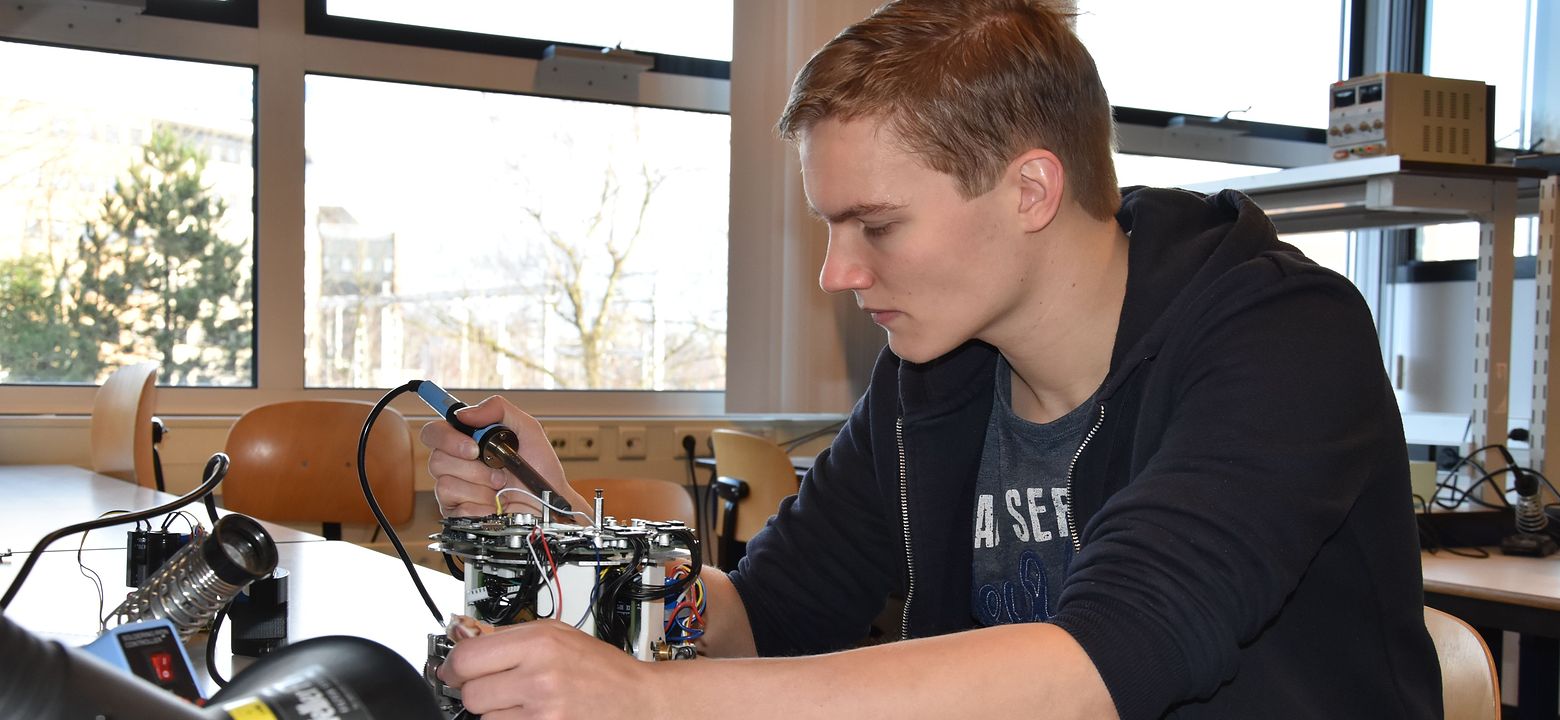Career prospects
On completion of the programme you will be awarded the Applied Computer Science degree and you may then use the BSc degree title. You can work for a wide range of companies as a software and hardware designer, programmer, or developer.
- Further education 13%
pursue postgraduate degrees after completion of this programme
- Job at your level 95%
find a job at their level within 1.5 years
- Good start 90%
find a job in the field
- Starting salary €2500
gross, based on 38 hours per week
- Accredited by NVAO
Professions for computer scientists
There is currently a significant shortage of IT professionals with a higher education. Companies are therefore urgently looking for people like you. So you have a good chance of finding a job in the field directly after graduation!
A programmer doesn’t just write software programs. Before you begin, you must first clearly define the problem. This is often done in consultation with the customer. Testing and writing documentation are also part of your job. Frequently you will work in a team to come up with different examples quickly.
As a test engineer you are more concerned with the end user. How will the software or hardware be used? And is it reliable and secure enough? You use various tools and measurement equipment during the testing.
You will also often hear the title ‘embedded systems engineer’ used. You design, build, and test complex systems, such as smart TVs, robots, Internet or Things devices, drones, and mobile phones – actually, any device that contains both hardware and software but doesn't look like a personal computer.
As a higher education graduate, you can often progress in your career to a position as a team leader, consultant, or similar.
Many companies and universities have a research and development department. If you choose to work in R&D you will research new devices, methods, and techniques and create initial product prototypes.
-
Automation specialist
-
Teacher
What kinds of companies can you work at?
Applied computer scientists find work at many kinds of companies. In fact, wherever software needs to be written or where devices are made – for traffic safety, consumers, or hospitals for example. Most applied computer scientists do a lot of programming work, usually in combination with embedded systems and the internet. You can also choose to start your own business.

Employment rate
There is tremendous demand for highly educated IT professionals. 95% of graduates find a job at their level within 1.5 years So you have a good chance of finding a job in the field directly after graduation!
Further education
If you want to continue your studies after completing Applied Computer Science, you could consider Saxion's unique master's programmes in Applied Nanotechnology or Robotics Systems Engineering. In addition the master's programmes at the University of Twente: Computer Science, Embedded Systems, Human Media Interaction, and Internet Science & Technology. You can complete the required pre-master as a minor during your study.
- Master of Applied Nanotechnology (Saxion)
- Master of Robotics Systems Engineering (Saxion)
- Master of Computer Science (University of Twente)
- Master of Embedded Systems (University of Twente)
- Master of Human Media Interaction (University of Twente)
- Master of Internet Science & Technology (University of Twente)